Getting Started - The Behaviour Help App
What is the Behaviour Help App?
The Behaviour Help App is an innovative, AI-powered web-based tool designed to streamline person-centred support for individuals with emotional and behavioural difficulties (EBD). By leveraging Artificial Intelligence, it provides a structured and efficient platform for conducting data-driven Functional Behaviour Assessments (FBAs) and developing tailored Positive Behaviour Support (PBS) plans, ensuring effective and personalised solutions.
Based on the data you input, the app helps generate an FBA and PBS plan for your expert review, professional refinement, and final approval.
This video showcases how the Behaviour Help App facilitates the completion of data-driven FBAs and the creation of effective PBS plans, offering valuable support for individuals with emotional and behavioural difficulties (EBD).
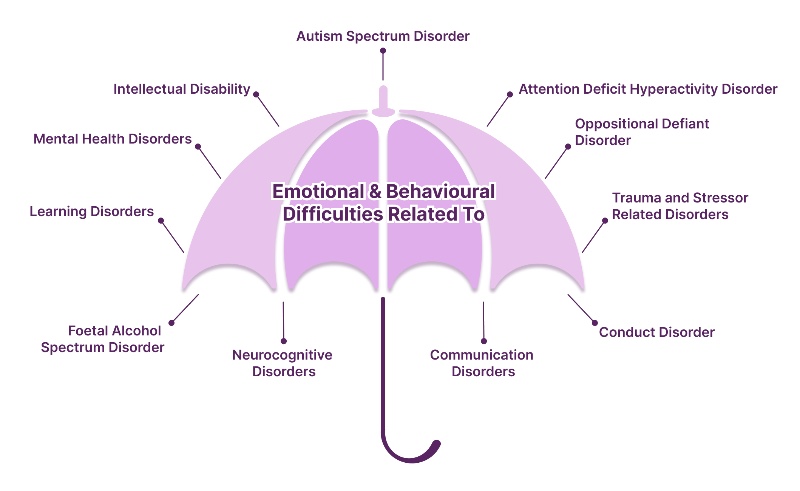
The app guides you step by step through the Behaviour Help Cycle to assess-manage-prevent behaviours of concern.
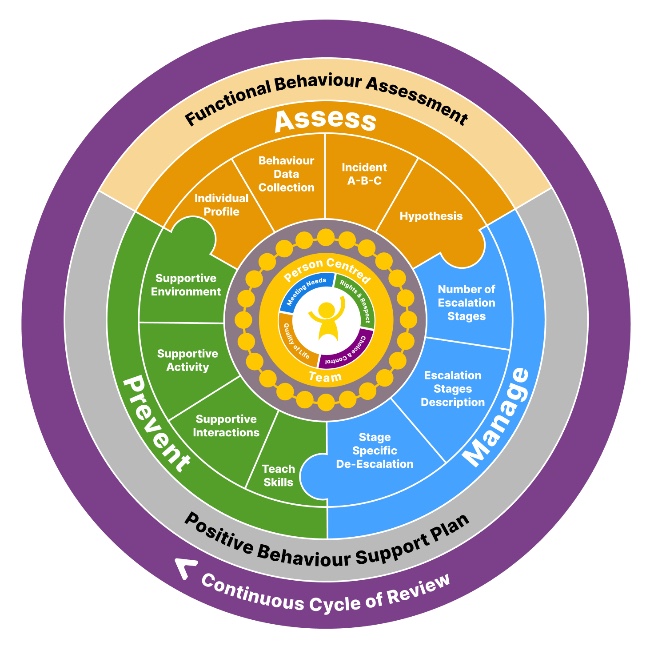
How is the Behaviour Help App Unique?
The Behaviour Help App stands out by incorporating Artificial Intelligence (AI) to enhance its features, which include questionnaires, data collection forms, charting solutions, and trend analysis. Based on the data you input, the app helps generate an FBA and PBS plan for your expert review, professional refinement, and final approval.
Importantly, the app ensures that practitioners remain in control, applying their professional expertise to review, refine, and approve all outputs.
The app offers the following benefits:
- Efficiency: Streamlines data collection, analysis, and interpretation, saving time and reducing manual effort.
- Accuracy: Reduces errors and inconsistencies in data recording and analysis.
- Collaboration: Facilitates seamless communication and teamwork through shared access to data and insights.
- Personalisation: Analyses individual data to suggest tailored FBAs and Positive Behaviour Support strategies.
- Monitoring: Enables ongoing monitoring and real-time adjustments to PBS plans based on updated data.
These features ensure that FBAs and PBS plans are evidence-based, practitioner-led, and highly personalised, leading to better outcomes for individuals with emotional and behavioural difficulties.
Who can use the Behaviour Help App?
The app can be used by professionals who have expertise in understanding and addressing behaviours of concern by using the evidence based positive behaviour support approach.
These professionals may include: Behaviour Support Practitioners, Board Certified Behaviour Analysts, Teachers and other professionals supporting individuals with emotional and behavioural difficulties in home, educational, clinical, justice or other therapeutic settings.
Who does the Behaviour Help App support?
The PBS professional can use the app to support people who exhibit emotional and behavioural difficulties. The individual may have one or more of the following diagnoses:
- Neurodevelopmental disorders (e.g. Autism spectrum disorder, intellectual disability, attention deficit hyperactivity disorder and Down syndrome)
- Learning difficulties (e.g. dyscalculia, dysgraphia, dyslexia)
- Aphasia (for example, Alzheimer's disease, acquired brain injury, stroke)
- Disruptive, impulse-control and conduct disorders (e.g. oppositional defiant disorder, conduct disorder, intermittent explosive disorder, kleptomania and pyromania)
- Mental health conditions (e.g. anxiety, depression and schizophrenia)
- Neurocognitive disorders (e.g. Alzheimer's disease, cerebrovascular disease, frontotemporal lobar degeneration, Lewy Body disease, Huntington's disease, traumatic brain injury (TBI), and substance-use-associated diseases)
- Trauma and stress related disorders
Where can the Behaviour Help App be used?
The Behaviour Help App can be utilised across a wide range of settings, including:
- Early childhood: Supporting young children with behavioural and emotional needs.
- Primary and secondary schools: Assisting educators in managing classroom behaviours and individual student needs.
- Accommodation settings: Enhancing support in disability shared living or independent living environments.
- Corrective services: Addressing behavioural challenges in juvenile and adult correctional facilities.
- Clinical and medical settings: Supporting behaviour management in hospitals, clinics, and therapy practices.
- Disability support services: Tailoring interventions for individuals with disabilities.
- Aged care: Managing behaviours and emotional well-being in elderly care environments.
- Mental health services: Providing behaviour support for individuals with mental health challenges.
This versatility makes the app an invaluable tool for professionals and caregivers in diverse environments.
Signing Up
1. Go to www.behaviourhelp.app
2. Click on 'Register'.
3. Enter your details:
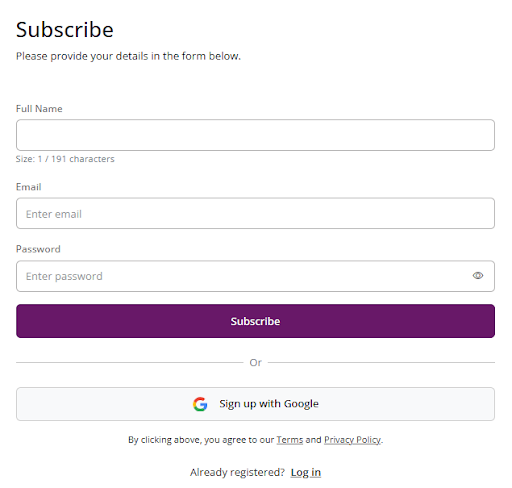
Simply select the number of individuals and purchase the corresponding subscription to get started.
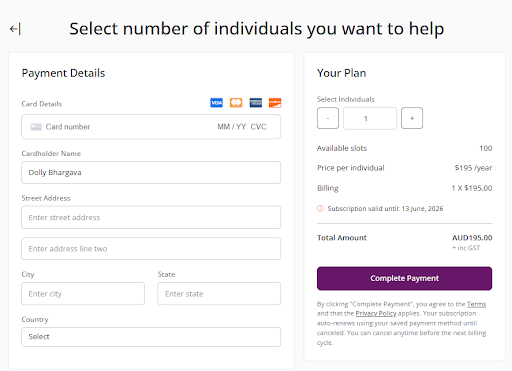
If you are part of an organisation that has multiple employees, you (the person who has purchased the subscriptions) can allocate a portion of the individuals to each employee.
When you log in:
Step 1: On the right hand side, you'll see the option "Dashboard". Click on it.
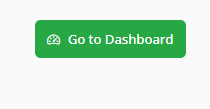
Step 2: On the left-hand side, you’ll see the option “Team.” Click on it:

Step 3: Add employee/s email addresses and allocate the number of individuals each employee can access — making sure the total adds up to the number of individuals you purchased when subscribing. You can always purchase more individuals as needed.
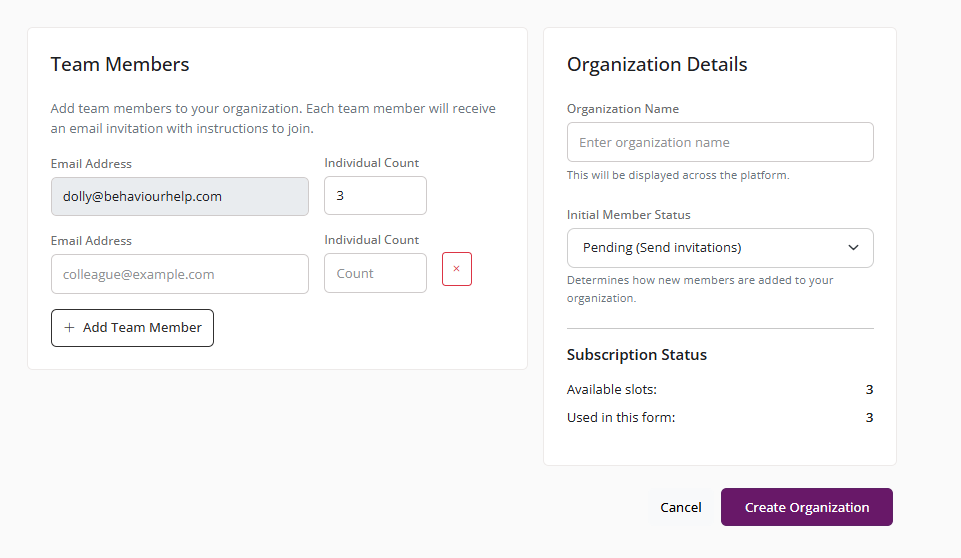
Step 4: Each employee will receive an email with their login details and a temporary password. Please remind them to check their inbox, junk, and spam folders. Alternatively, you can manually set a temporary password for the employee. They can then use their email address and the temporary password to log in at behaviourhelp.app and get started.
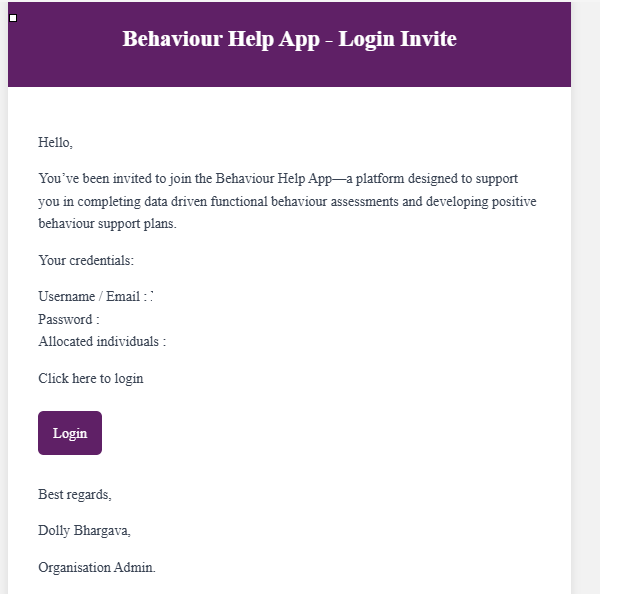
Step 5: The employee can then log in to the app (behaviourhelp.app) using the details contained in the email and begin creating Functional Behaviour Assessments (FBAs) and Positive Behaviour Support (PBS) plans for their allocated number of individuals.
Now that your organisational dashboard is set up, you can easily add or remove employees and allocate more individuals to their accounts as needed.

$195
Per individual / Per year
Annual payment only
Logging In
Once your account has been created, log in to get started. Visit behaviourhelp.app to log in.
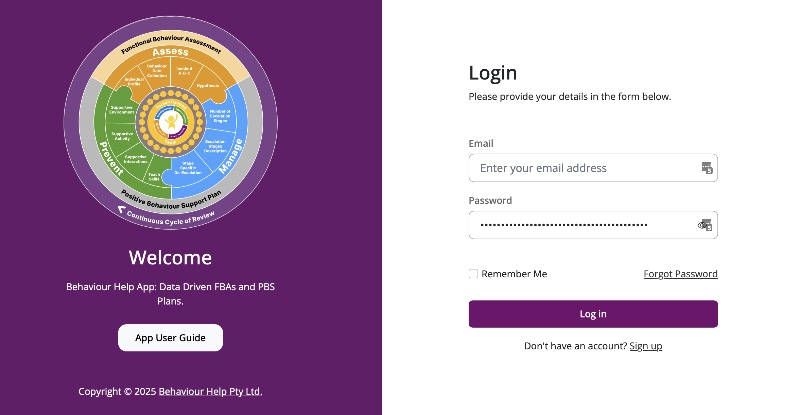
Managing Your Subscription
You can add more individuals to your plan at any time. Simply click the Upgrade button at the top-right corner of your screen. Use the slider to select the number of additional individuals you’d like to support.
Once you confirm and pay the upgraded subscription price, you’ll instantly gain access to create FBAs and PBS plans for the newly added individuals.
Your account will display the updated total number of subscribed individuals (up to a maximum of 100 slots), along with active and remaining slots.
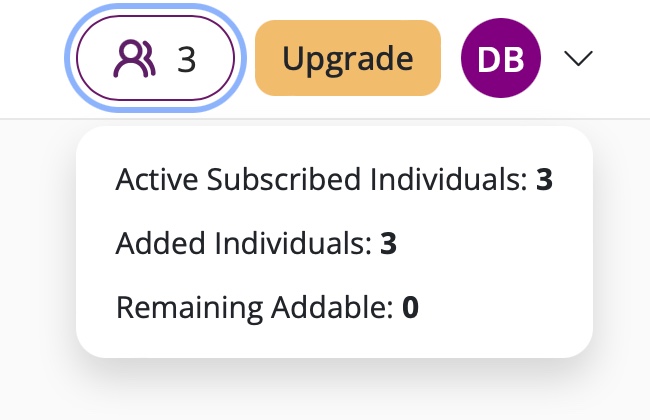
Under Settings > Subscriptions, you can view details of your purchases, including the purchase date and expiration date. A month before expiration, the app will prompt you to renew your subscription. If you choose not to renew, your folder will be removed one month after expiration—so be sure to download any necessary information beforehand.
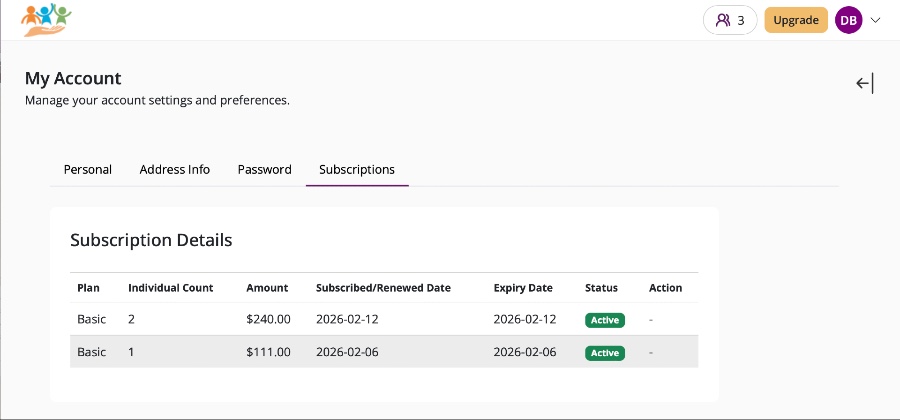
Assess Stage
Behaviour Help app will guide you step by step through the various components of the Functional Behaviour Assessment template to systematically gather information, collect data and create hypotheses to identify the underlying causes and functions of behaviours of concern. The FBA will provide a solid foundation for creating effective and personalised Positive Behaviour Support Plans.
You can now start completing the various components of the ‘assess’ stage that are part of the Functional Behaviour Assessment.
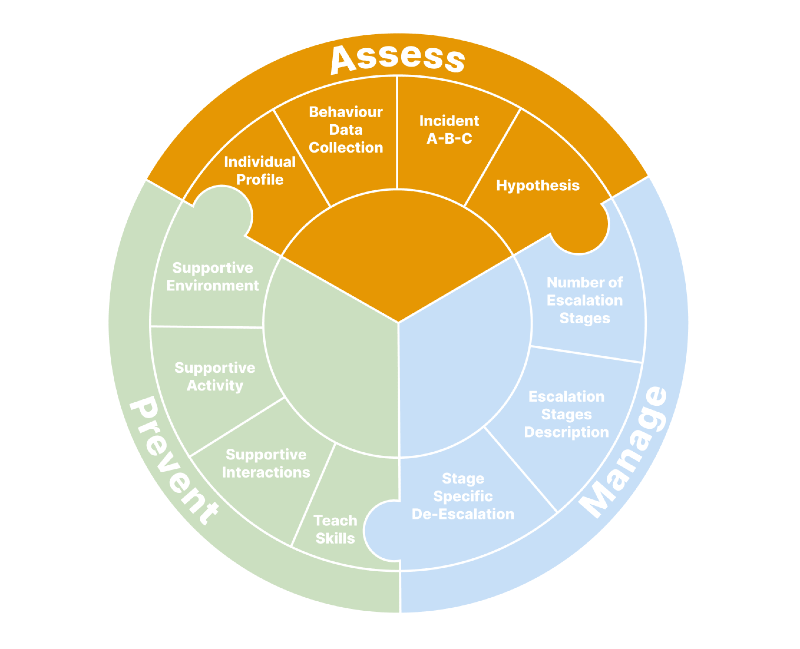
Information Sources
Record details of the multiple sources (e.g. interviews, questionnaires, direct observations, document/report reviews, meetings) that information was gathered from to develop a thorough understanding and holistic view of the individual's behaviour.
Tailor the form by using the bin symbol to delete any sources that do not apply.
Where applicable questions include a drop-down menu that provide a comprehensive list of suggestions to select from or enter your own response.
Remember to click on the save button before moving on to the next section.
Individual profile
The app guides the user through an individual profile which is a questionnaire to gather detailed information about the individual’s background, their skills and preferences.
Where applicable questions include a drop-down menu that provide a comprehensive list of suggestions to select from or enter your own response.
Remember to click on the save button before moving on to the next section.
Behaviour data collection forms
The app allows you to select behaviours of concern that the individual exhibits.
For each behaviour of concern a definition is provided that can be edited to reflect your individual’s presentation.
You can then create a personalised behaviour data collection form so that multiple team members supporting the individual in different settings can complete daily behaviour logs by inputting measurable details (e.g. frequency, intensity, duration) about the behaviours of concern.
These logs allow tracking of behaviours throughout the day across different settings.
The app then collates the metric data, generates graphs, and allows for data export. These visual representations of data can then be analysed by the user to identify patterns and trends in behaviour.
A-B-C analysis
The app allows multiple team members to systematically input incident details by recording the antecedents (what preceded the behaviour), behaviours (describing the observable actions as they occurred) and the consequences (what happened after the behaviour). The app then collates all the incidents into an incident register system for the user’s easy analysis.
Hypothesis
By reflecting on both the qualitative and quantitative data the user can identify the most likely purpose (i.e., function) that the behaviour of concern serves for the individual and what reinforces that behaviour to occur again can be determined.
Review
The app can also generate a downloadable functional behaviour assessment that can be printed or saved as a PDF and/or Word to be shared with the individual's support team.
Information derived from the functional behaviour assessment contributes to the next two stages: “manage and prevent” that together form an individualised positive behaviour support plan.
Information Sources
To develop a thorough and person-centred understanding of the individual's behaviour, begin by uploading relevant interview notes, questionnaires, assessments, or diagnostic letters under Information Sources. The app will automatically analyse these documents and populate relevant fields within the individual's profile.
Click on the save button before moving on to the next section.
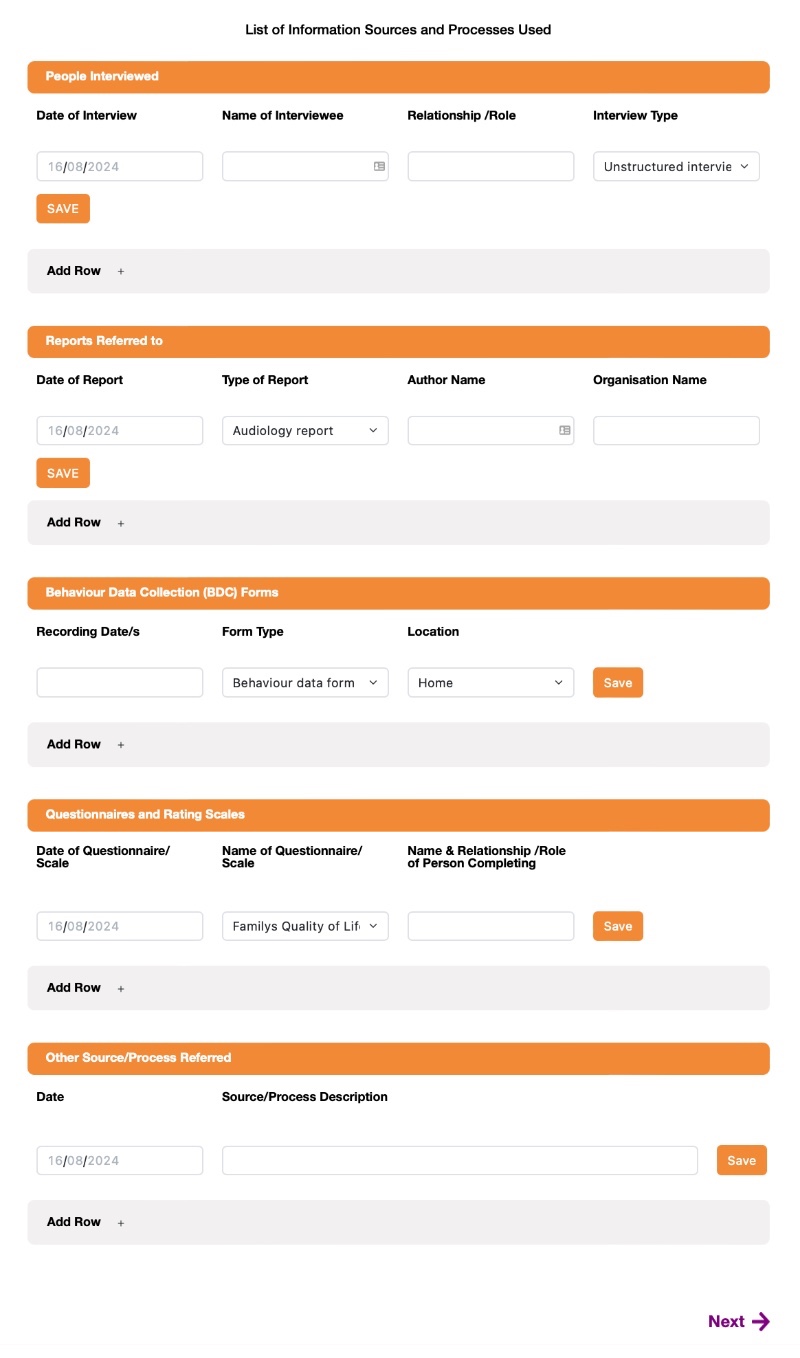
Individual Profile
The Individual Profile is a structured questionnaire designed to gather detailed information about the person’s background, skills, and preferences. Review the pre-filled data generated from uploaded documents in the Information sources.
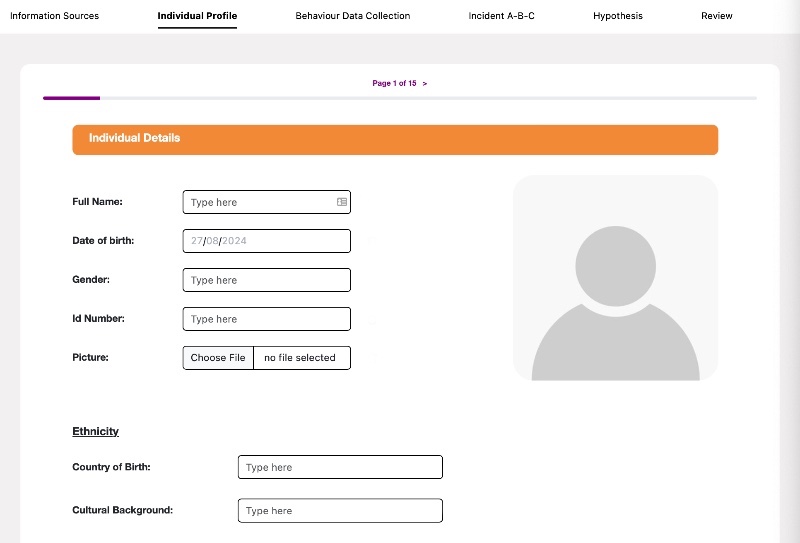
Remember to click on the save button before moving on to the next section.
As you review the information you can add/delete details by using the provided dropdown menu with a comprehensive list of suggestions and/or typing in your own responses to provide additional personalised insights. This ensures the profile remains thorough and accurately reflects the individual’s unique strengths, needs, and context.
Click on the save button before moving on to the next section.
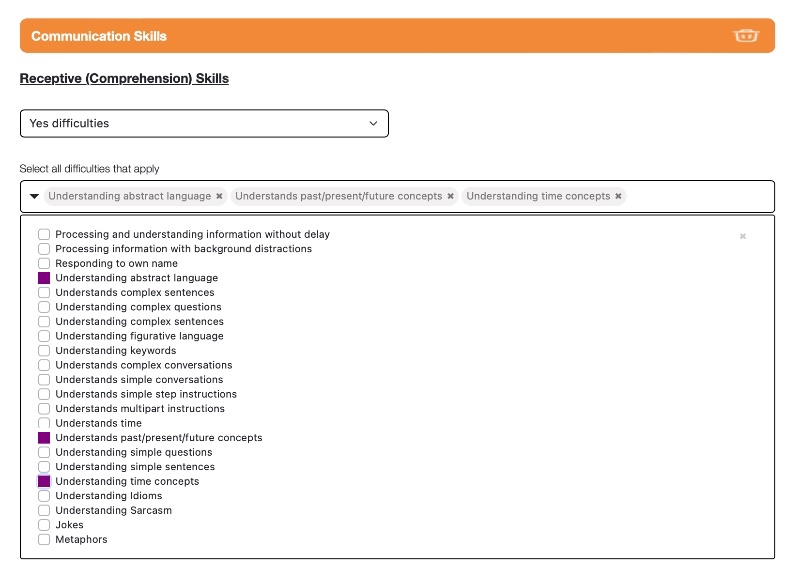
Behaviour Data Collection
Behaviour data collection forms
The app allows you to select behaviours of concern that the individual exhibits.
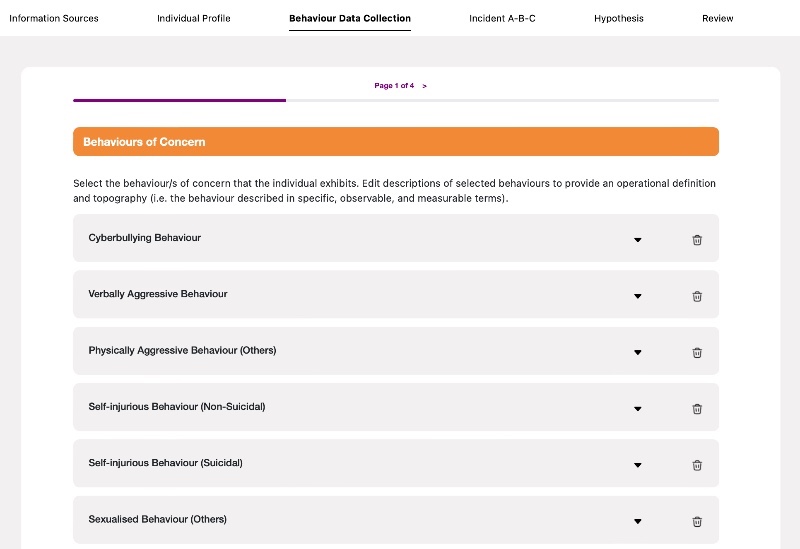
Next, you can create a personalised behaviour data collection form. Select ‘Create New Form +’ to personalise the behaviour data collection (BDC).

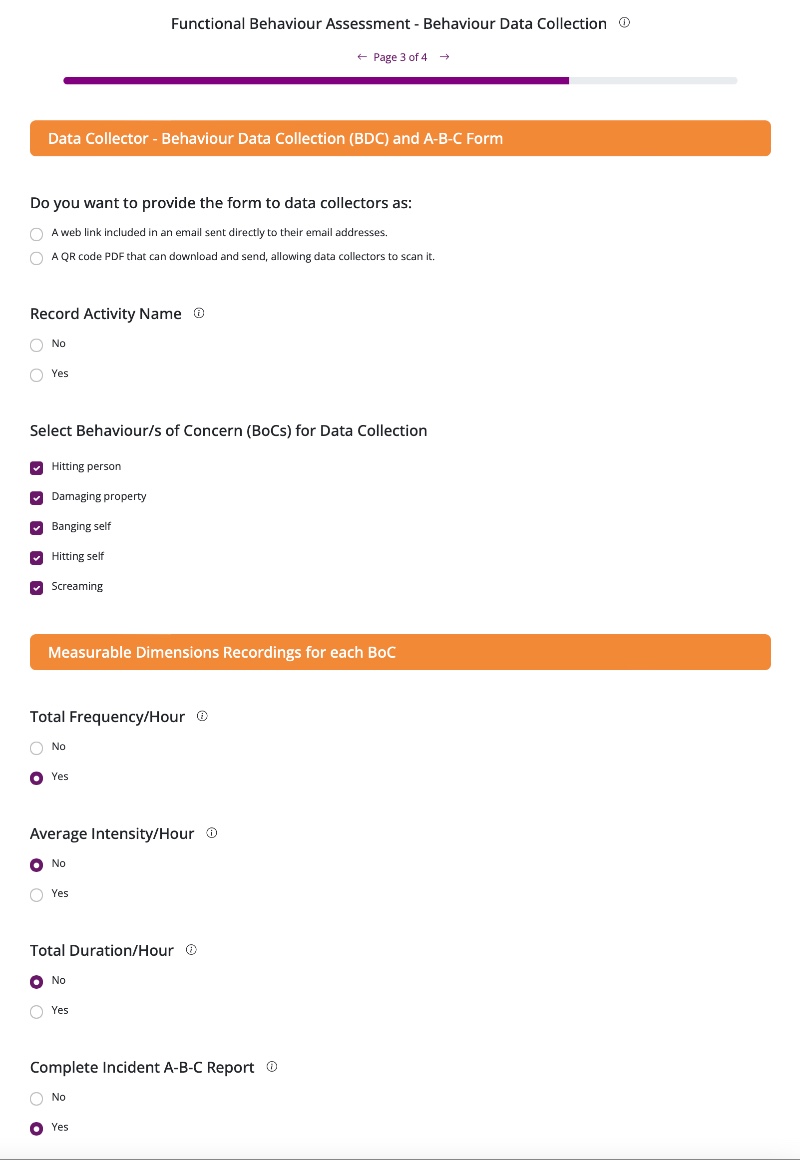
The app allows you to send a web link or QR code for behavior data collection forms to multiple team members (data collectors) across different settings. This enables collaborative completion of daily behavior logs and ABC (Antecedent-Behavior-Consequence) incident forms, ensuring comprehensive and consistent data collection.
The app then collates the metric data, generates graphs, and allows for data export. This can be found on page 4 of 4 of the Behaviour Data Collection section. To view data, you can enter a specific date range.
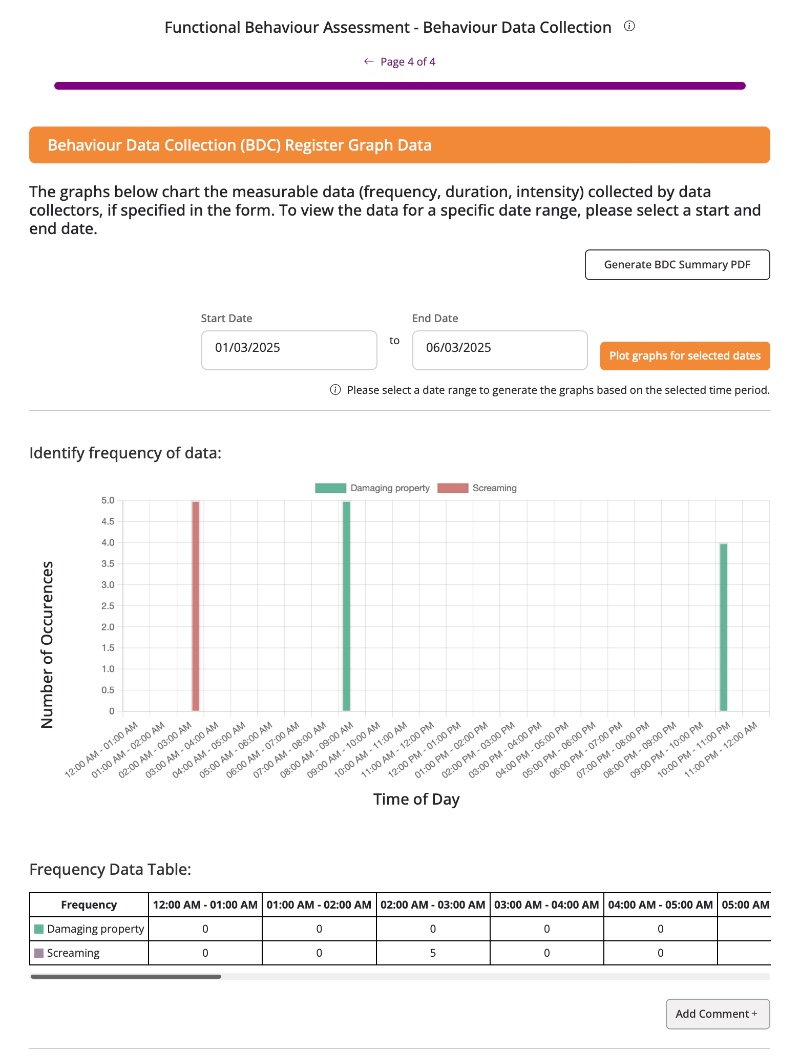
The visual representations of data can then be analysed by the user to identify patterns and trends in behaviour.
ABC Incident
The app allows multiple team members to systematically record incident details by documenting setting events (background factors that may increase the likelihood of a behaviour, such as lack of sleep, illness, or changes in routine), antecedents (what occurred immediately before the behaviour), the behaviour itself (describing the observable actions), and consequences (what happened immediately after the behaviour).
All submitted incidents are automatically compiled into an Incident Register, accessible in the A-B-C Incident section. To download a copy of all recorded incidents, simply click the Download ABC button to generate a PDF report.

You can use the Generate AI for analysis.
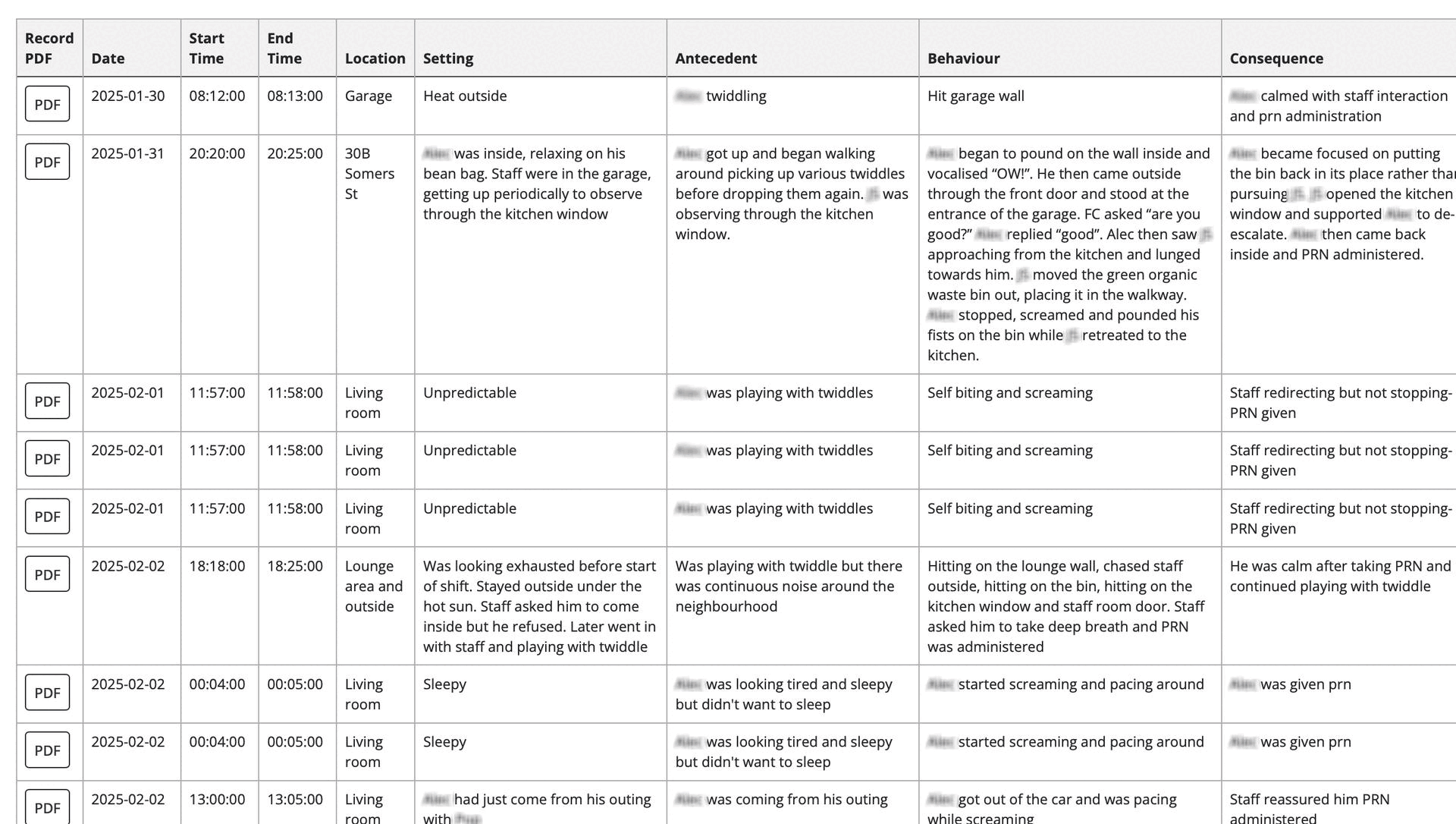
Automated Incident PDF Email Distribution
The app enables you to enter the email addresses of key individuals who will automatically receive incident form pdf submitted by data collectors. Key recipients may include the Behaviour Support Practitioner, parent/guardian, support provider, and other relevant professionals.
Hypothesis
The app reflects on both qualitative and quantitative data to identify the most likely purpose (i.e., function) the behaviour of concern serves for the individual, as well as the factors reinforcing its recurrence.
Remember: You can edit and refine the app’s analysis as needed.

Assess Review
The app can also generate a downloadable functional behaviour assessment that can be printed or saved as a PDF to be shared with the individual's support team.
Information derived from the functional behaviour assessment contributes to the next two stages: “manage and prevent” that together form an individualised positive behaviour support plan.
Manage Stage
Behaviour Help app will guide you step by step to through the various components of the behaviour management plan template that provides a structured approach to managing and responding to the individual’s behaviours of concern in various settings.
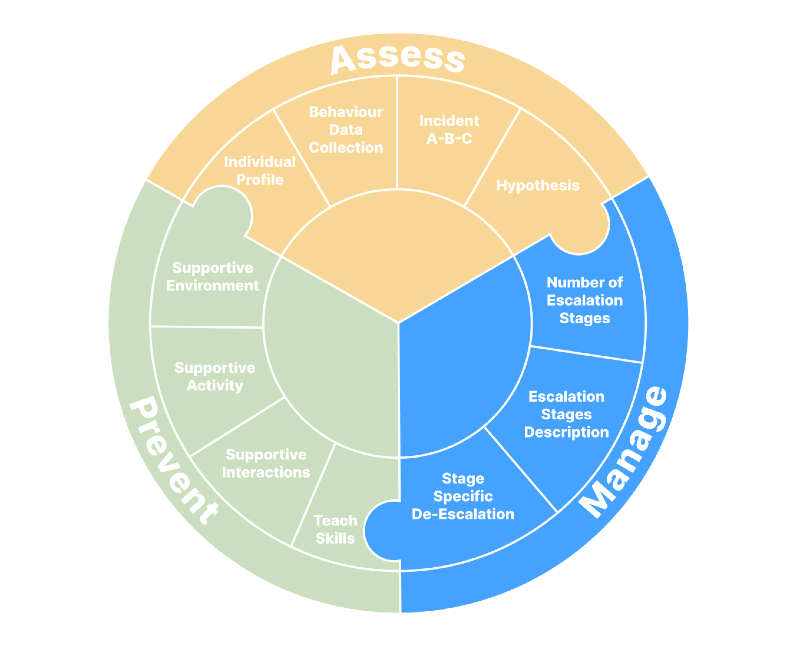
Escalation stages
The app enables the user to select an escalation curve to help those supporting the individual recognise the number of stages the individual typically exhibits as their emotional intensity rises (for example, mild escalation, moderate escalation, extreme escalation and recovery stage).
Remember to click on the save button before moving on to the next section.
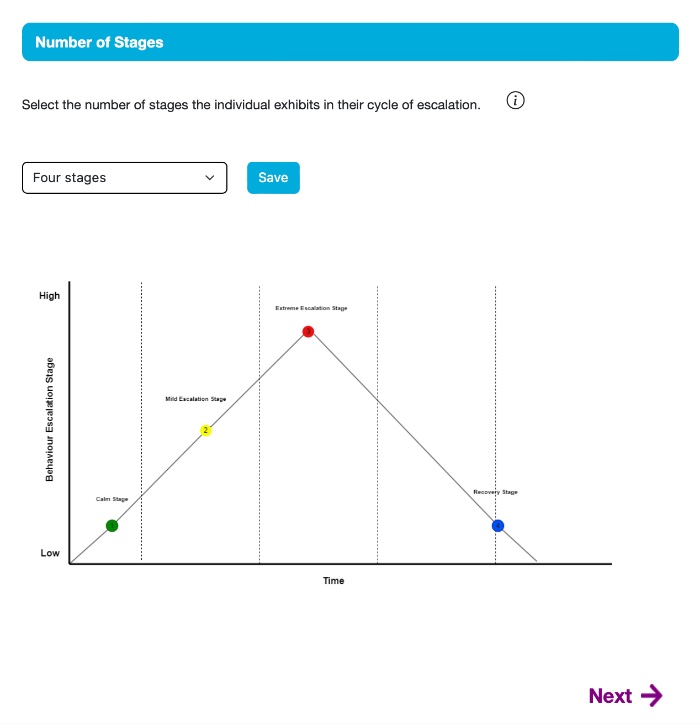
Stage descriptions
The app will review the gathered information (e.g., incident reports) to generate sample responses that describe both verbal and nonverbal behaviours exhibited by the individual at each stage of escalation.
These sample responses can then be personalised to accurately reflect the individual’s unique escalation profile. Remember: You can edit and refine the app’s analysis as needed.
Don’t forget to click the Save button before moving on to the next section.
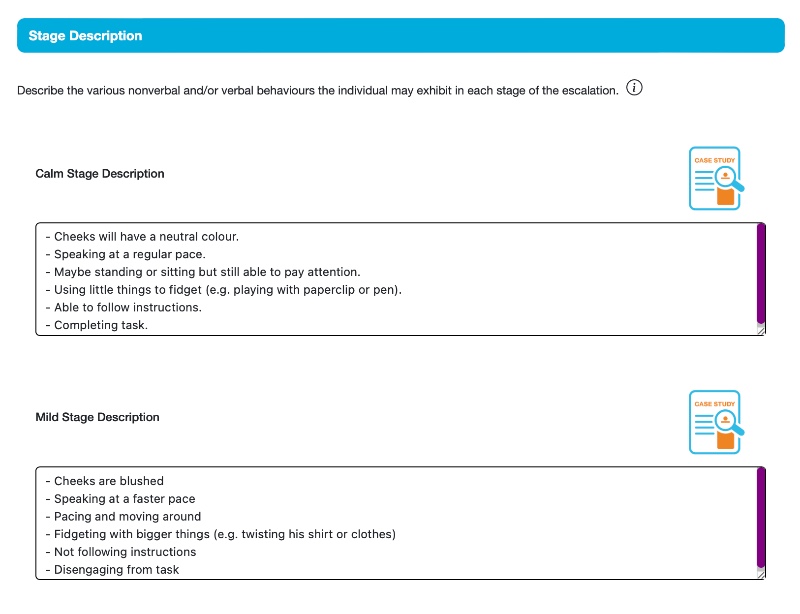
Stage-specific de-escalation
The app will review the gathered information (e.g., incident reports) to generate sample stage-specific de-escalation strategies designed to safely defuse, redirect, and manage behaviours in the least disruptive manner. Remember: You can edit and refine the app’s analysis as needed.
If the use of authorised restrictive practices is required, clear procedures for their implementation must be included.
Remember to click the save button before moving on to the next section.
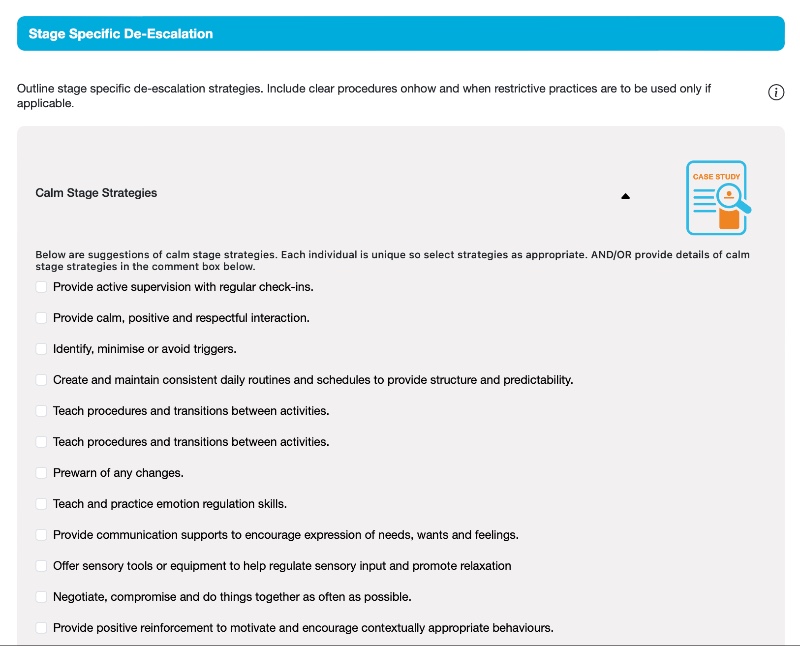
Review
The app then generates a downloadable behaviour management plan that can be printed or saved as a PDF to be shared with the individual's support team.
Escalation Stages
The app enables the user to select an escalation curve to help those supporting the individual recognise the number of stages the individual typically exhibits as their emotional intensity rises (i.e. mild escalation, moderate escalation, extreme escalation and recovery stage).
Remember to click on the save button before moving on to the next section.

Stage Descriptions
The app enables the user to describe the nonverbal and/or verbal behaviours exhibited by the individual for each of the escalation stages.
This enables those supporting the individual to recognise the intensity of the escalation consistently.
The section includes sample case studies.
Remember to click on the save button before moving on to the next section.
Stage Specific De-Escalation
The app enables the user to provide stage specific de-escalation strategies to those supporting the individual to respond early in ways that can safely defuse, redirect and de-escalate the situation in the least disruptive manner.
If authorised restrictive practices are to be used, then clear procedures for these practices can be included.
The section includes sample case studies.
Remember to click on the save button before moving on to the next section.
Manage Review
By reviewing the data and feedback from the individual and their support team the user can adjust the management plan as needed.
The app then generates a downloadable behaviour management plan that can be printed or saved as a PDF and/or Word tdocument o be shared with the individual's support team.
This can be printed or saved as a PDF to be shared with the individual’s support team so that the team can consistently manage behaviours of concern across different settings. Information gleaned from the assess and manage stage also contributes to the development of targeted interventions in the prevent stage.
Prevent Stage
The Behaviour Help App provides a step-by-step guide to navigate the various components of the behaviour prevention plan template. This structured approach helps proactively minimise the occurrence of behaviours of concern by identifying and addressing potential triggers, implementing modifications, and teaching positive alternatives. With the support of AI, the app offers tailored suggestions and insights to enhance the effectiveness of the plan, making it more personalised and actionable.

Supportive environments
The app analyses the data you’ve entered and provides a range of suggested strategies to help tailor both indoor and outdoor environments.
These suggestions are designed to meet diverse sensory, accessibility, physical, and emotional regulation needs. Remember: You can edit and refine the app’s analysis as needed.
Click the Save button before proceeding to the next section to ensure your inputs are securely stored.
Supportive interactions
The app analyses the data you’ve entered and offers a range of suggested strategies to promote communication that is clear, fair, empathetic, collaborative, and responsive.
These strategies are designed to foster respectful, trusting, and positive relationships. Remember: You can edit and refine the app’s analysis as needed.
Click the Save button before proceeding to the next section to ensure your inputs are securely stored.
Supportive activities
The app will review the data and suggest strategies that focus on tailoring activity scheduling, resources, design, and engagement to align with the individual’s needs, abilities, and preferences. Remember: You can edit and refine the app’s analysis as needed.
Click the Save button before proceeding to the next section to ensure all inputs are securely recorded.
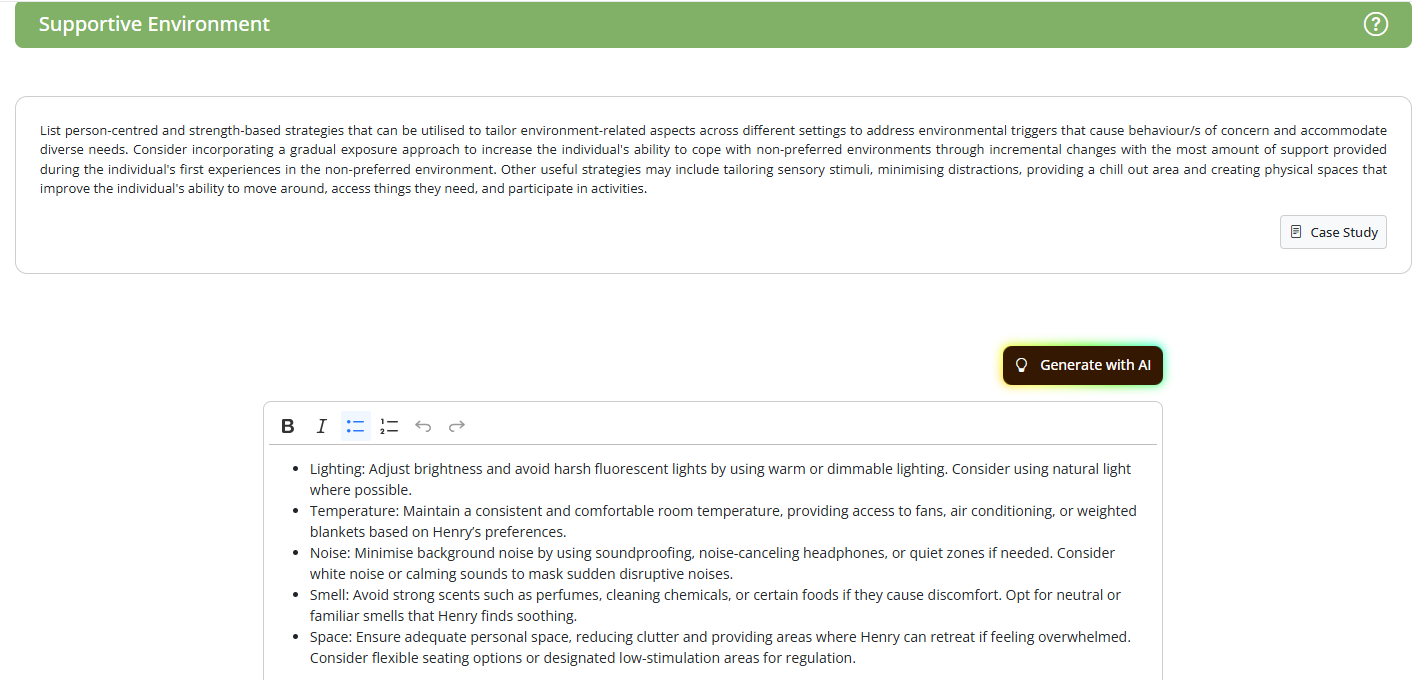
Teaching Skills
The app provides step-by-step guidance for creating a teaching skills plan that team members can use to target SMART goals while supporting individuals in skill development.
- Enter SMART goal/s in each row.
- Enter a start date. If you do not have an end date leave the box empty and the app will keep recording data until you specify an end date.
- Email data collectors a link from the app that they can use to conveniently enter and track progress towards the SMART goals.

The tools in the app help record the progress the individual is making towards achieving the SMART goals.
Review
The app then generates a downloadable “prevent” stage summary that is part of the positive behaviour support intervention plan. This can be printed or saved as a PDF and/or Word document to be shared with the individual's support team for consistency of supports.
Supportive Environment
The app enables the user to equip those supporting the individual with strategies on how to tailor indoor and outdoor spaces to support diverse sensory, accessibility, physical and emotional regulation requirements.
Included is a comprehensive list of suggestions to select from or enter your own response.
The section includes sample case studies. Remember to click on the save button before moving on to the next section.
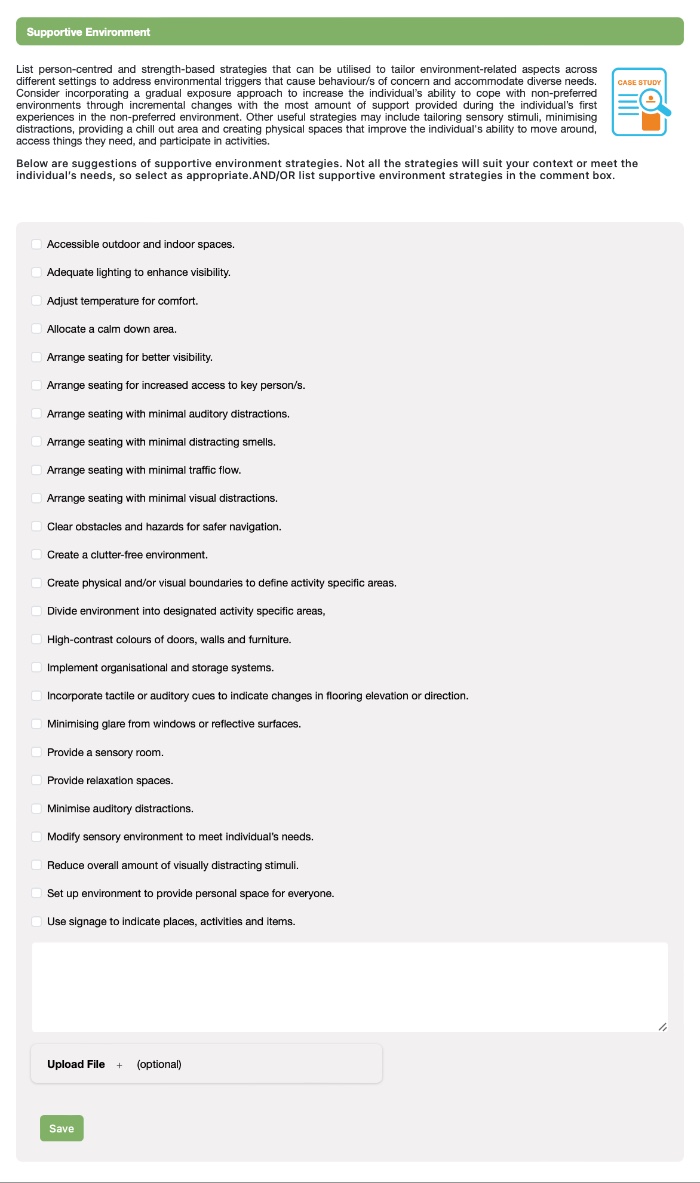
Supportive Interaction
The app enables the user to equip those supporting the individual with strategies to promote communication that is clear, fair, empathetic, collaborative and responsive to foster respectful relationships.
Included is a comprehensive list of suggestions to select from or enter your own response.
The section includes sample case studies. Remember to click on the save button before moving on to the next section.
Supportive Activity
The app enables the user to equip those supporting the individual with strategies on how to tailor activity scheduling, activity resources, activity design and activity engagement to meet the individual’s needs, abilities and preferences.
Remember to click on the save button before moving on to the next section.
Teach Skill
The app enables the user to equip those supporting the individual with person-centred SMART goals, associated methods or approaches to achieve and reinforce the individual to skills. A fade out plan for restrictive practices can also be recorded. The tools in the app will helps record progress the individual is making towards achieving the SMART goals.
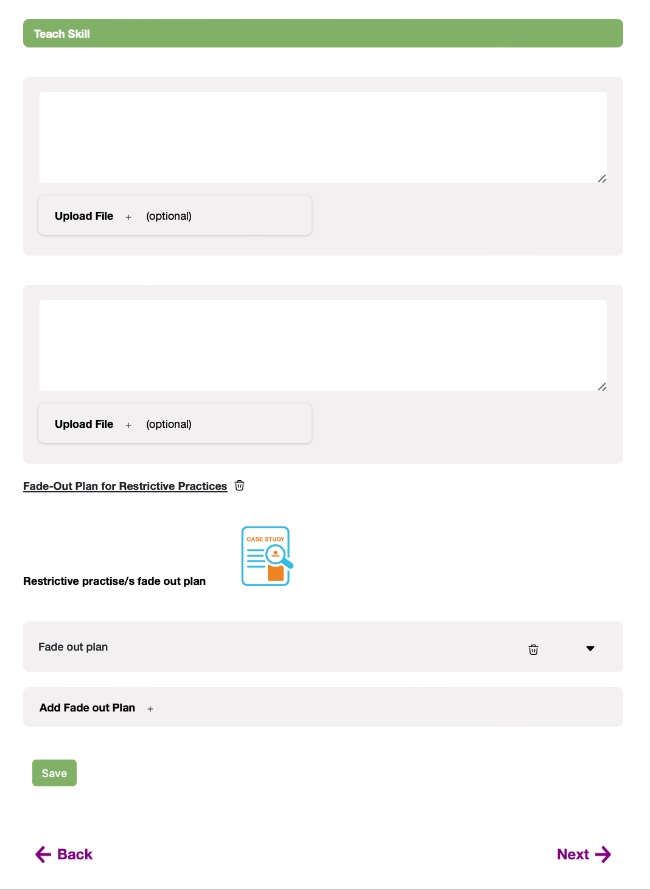
Review
The app then generates a downloadable prevent stage summary that is part of the positive behaviour support intervention plan.
This behaviour prevention plan can be printed or saved as a PDF to be shared with the individual's support team.
The plan helps the team utilise consistent preventative strategies across settings that minimise or avoid triggers that prime or reinforce the behaviours of concern.
As well as enable the team members to teach and reinforce the development of new skills and alternative behaviours that serve the same function as the behaviour of concern, to maximise the individual’s participation, quality of life, independence and development across multiple domains.
Ongoing Monitoring
The Behaviour Help App supports continuous monitoring to ensure your Functional Behaviour Assessment (FBA) and Positive Behaviour Support (PBS) plan remain effective and relevant over time.
Continue to upload new reports and review behaviour data forms and ABC incident reports in the Assess stage to keep the FBA up to date. Use the app’s clinical analysis to identify emerging patterns and refine both the Behaviour Management Plan and Prevention Plan accordingly.
Track progress towards SMART goals created in the Prevent stage using shared goal-tracking forms completed across different settings. Instantly analyse submitted data to determine what’s working and where changes may be needed.
Use these insights to guide ongoing adjustments and take measured, evidence-based steps toward reducing and ultimately eliminating restrictive practices.
FAQs
Help! The data collectors haven't received the link.
Please ask data collectors to check their email spam or junk folder. If they still haven’t received it, follow these steps:
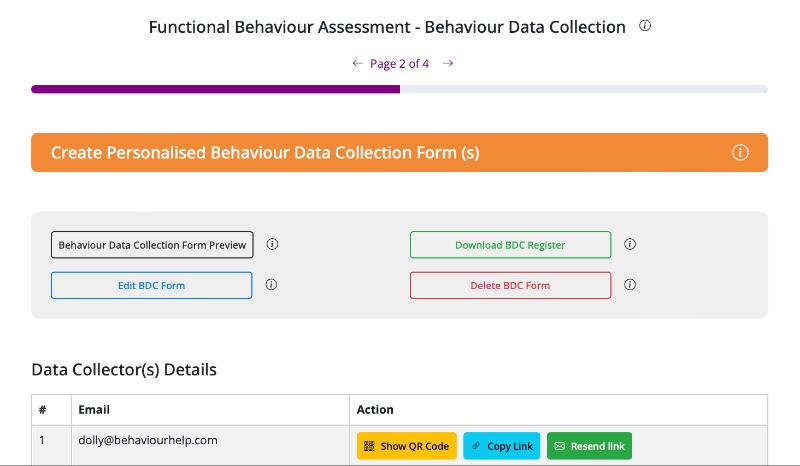
Choose one of the following options:
- Click 'Resend Link'.
- Click 'Copy Link' and share it manually.
- Click 'Edit BDC Form', delete the existing email using the bin icon, re-enter the email and save.
Help! The data collector's link isn’t working.
If the link isn't working there are a few things we can do to try and resolve this.
- Go to Behaviour Data Collection - Page 2 of 4.
- Choose one of the following options:
- Click 'Resend Link',
- Click 'Copy Link' and share it manually. You can test if the link is working by pasting it into your web browser to see if it opens.
- Click 'Edit BDC Form', delete the existing email using the bin icon, re-enter the email and save.
Help! What email does the data collector receive?
Emails with the form link and/or QR code will be sent to data collectors from noreply@behaviourhelp.app
Help! How do data collectors complete the form?
In the email received by the data collector, there is either a weblink or a QR code (depending on the selected option) that directs them to a unique form created for the individual they are supporting. By clicking the link, the data collector opens the form along with detailed instructions (as shown below). They can then complete the form on any device with an internet connection.
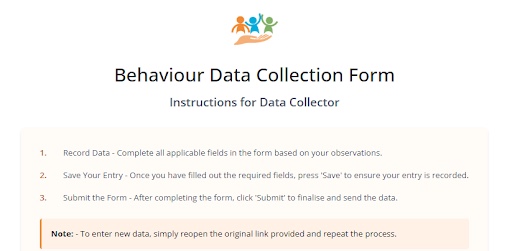
Help! Where does the data collector's data appear in the app?
Recorded measurable data (e.g., frequency, duration, and intensity) will appear as graphs and metrics on Page 4 of 4 in the Behaviour Data Collection section (Assess stage).
Recorded incident forms will be available in the Incident Register on Page 1 of 1 in the A-B-C Data Collection section (Assess stage).


